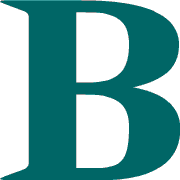|
If you don't pay in full, yes you will be charged the interest rate on the unpaid balance, plus you will be charged interest on new purchases without any grace period. (Most likely.) So basically just don't even go there, if you were thinking about it. 15% is very expensive. If you ever have to pay interest to your credit card, you should take it as a wake-up call that you've lost control of your finances.
|
|
|
|

|
| # ? May 11, 2024 22:26 |
|
Busy Bee posted:Very basic credit card question. I have great credit and currently have two CC's with a 25k+ limit. I've always paid my balance in full but recently have been curious on how the interest rates work. It sounds like you're asking about calculating amortization. Most credit cards compound a daily interest rate that is calculated to be such that if you paid nothing towards your balance and charged nothing else, you will have been charged the APR in interest one year later. Reversing that calculation is obviously complicated (the math I guess would work out to be being charged the 365th root of (1 + your APR) times your balance daily), and so the exact amount of interest you end up repaying really depends on the exact schedule of your repayment. Really, just don't carry a balance. Then you never need to worry about it. edit: The government has a credit card repayment calculator at http://www.federalreserve.gov/creditcardcalculator/ Kilty Monroe fucked around with this message at 08:26 on Dec 26, 2013 |
|
|
|
My wife finally got her divorce settlement, after three years of waiting. $33k in her ex's company 401(k). We're carrying $6k credit card debt,$25k in student loans, and $164k on our mortgage. My question is should we cash out that 401k (we both have good retirement accounts), take the tax hit, and pay off the credit card and as much of the student loans as possible, or roll the 401k into my roth, and pay off the credit card on our own? We never carried credit card debt before, but we both had big life changes/required expenses in the past year and it's been following us since. On our own, we could probably pay the credit card off in about two or three months. My inclination is to take the tax hit and just pay off as much debt as we can, but I'd love to hear others' opinions on the matter.
|
|
|
|
I think I side w Dave Ramsey on this. You only touch retirement accounts for bankruptcy (or something else dramatic and extreme like bankruptcy, I forgot what that is tho..maybe homelessness?) So I would roll the 401k into your Roth/IRA and cashflow the debt payoff. Plus, a 20% penalty vs a couple months of interest? I bet it's wiser to cash flow the payoff and pay nominal interest vs penalty.
|
|
|
|
unprofessional posted:we could probably pay the credit card off in about two or three months It's not worth raiding retirement money for something you can take care of so easily. The interest on the card isn't important over a few months - more critically, you need to keep yourselves from getting in this boat again. Bigger emergency fund maybe? Really depends on the bigger picture though - what is your income and budget looking like relative to building emergency savings + paying off card + paying off loans + mortgage?
|
|
|
|
Roll it over and pretend like it never happened. Your future you will thank you. Get your poo poo straight the way you would have otherwise!
|
|
|
|
If I sell shares of my mutual fund, I'm only taxed on the money I made(profit), correct? e: I'm an idiot and found this on Google. HarmB fucked around with this message at 12:17 on Dec 27, 2013 |
|
|
|
SiGmA_X posted:I think I side w Dave Ramsey on this. You only touch retirement accounts for bankruptcy (or something else dramatic and extreme like bankruptcy, I forgot what that is tho..maybe homelessness?) So I would roll the 401k into your Roth/IRA and cashflow the debt payoff. Aren't 401K protected in bankruptcy? In which case, you shouldn't touch them even for that.
|
|
|
|
Okay, I have a major short term goal that I am thinking about borrowing from my 401k for... 1. Is that crazy? 2. Can you help me to understand how big of a penalty I'd be incurring? 3. What happens if it isn't paid back in the 5 years or whatever it's supposed to be paid back in? 4. Is this crazy? I am still young(25), and I maintain a Roth IRA that I won't be touching. I am not planning on remaining with my company for too much longer and I don't know if my next employer would be someone I could roll my 401k over to. Thanks.
|
|
|
|
Fisticuffs posted:Okay, I have a major short term goal that I am thinking about borrowing from my 401k for... Someone can answer this in more detail than I can, but.... 1. Yes, unless it's to avoid severe hardship 2. You're going to withdraw pre-tax dollars, incur a penalty, AND pay back post-tax dollars, so you'll lose a lot of money. 3. I don't know this one I am so sorry 4. Yeah man what the hell If you leave the company you can roll your 401k over to an IRA, which is far, far better than rolling it into a new 401k.
|
|
|
|
Fisticuffs posted:Okay, I have a major short term goal that I am thinking about borrowing from my 401k for... 1. Yes. 2. See http://allfinancialmatters.com/2008/02/28/how-much-will-that-401k-loan-cost-you/ 3. Anything not paid back on time is treated as a 401(k) distribution. It'll get "forgiven" but reported as income on your taxes and you'll have to pay federal, state, applicable local taxes plus social security and medicare and a 10% early withdrawal fee. Basically: you pay a lot of extra taxes. 4. Yes.
|
|
|
|
Right, it's a lousy idea. What is the short term goal you want to gently caress up your retirement savings for?
|
|
|
|
slap me silly posted:Right, it's a lousy idea. What is the short term goal you want to gently caress up your retirement savings for? I am moving across the country soonish. I am getting a little stir-crazy here at work. Those aren't good reasons but that's the truth. My main concern was that I will be working for a startup that may not have stuff like their 401k and benefits in the early goings. I didn't know that I could roll my 401k into an IRA(I already have an IRA, can I roll it into that one or will I have two now?), so I thought that money would just languish until I was old enough to crack it open. I don't think cashing my 401k would gently caress with my retirement savings much tbh. I have only put in the 6% my company will match me on for the two years I've been here. My personal IRA has been open since I was 18 and I've contributed much, much more money to it. Really I feel like I've put too much money into my retirement savings and don't have enough of a slush fund, but I can tackle that in my 2014 budgets... I just want the money now because I am a whiny baby
|
|
|
|
That's what, 18-24% of your annual salary? Not exactly chump change. Roll it over to an IRA and leave it alone. Just deal with the tight budget for the six months or a year, it won't kill you. You're going to find yourself here again - maybe you think this is a one-off, but it's not. Next time you'll need it to renovate your house, or replace a totaled car, or pay for the wedding... there's always a reason to "need" the money. So start practicing now at leaving it alone. If your main retirement savings are in a Roth IRA - there's a contribution limit, you can't have been saving more than 10-15% of your income, right? So no, you haven't been saving too much for retirement.
|
|
|
|
Fisticuffs posted:Words FrozenVent posted:Aren't 401K protected in bankruptcy? In which case, you shouldn't touch them even for that. I'm opposed to treating any sort of retirement fund as a 'loan' in any more normal situation though. Get your finances in order and rid yourself of the debt and don't damage your future!
|
|
|
|
slap me silly posted:That's what, 18-24% of your annual salary? Not exactly chump change. Roll it over to an IRA and leave it alone. Just deal with the tight budget for the six months or a year, it won't kill you. You're going to find yourself here again - maybe you think this is a one-off, but it's not. Next time you'll need it to renovate your house, or replace a totaled car, or pay for the wedding... there's always a reason to "need" the money. So start practicing now at leaving it alone. The contribution limit is $5.5k, which I have hit every year since I opened it at 18. I am now 25. I don't think it's a bad thing that I am a bit ahead there, or at least I feel like I am, but I wish I would've saved more money outside of my retirement fund(s). I can't really take issue with maxing my IRA contributions or chipping in the 6% that my company is willing to match. It would've been stupid not to take advantage of that, really. Will rolling my 401k over be considered a contribution to my IRA? If it would be, I could take the money I won't have to contribute and put that towards moving.
|
|
|
|
No - a rollover doesn't count as a contribution. You'll still have the full $5500 IRA space for the year. If you do really need the money I'd suggest underfunding your IRA a little bit right now rather than taking anything out of existing retirement accounts. In other words, be thinking more ahead than behind.
|
|
|
|
Fisticuffs posted:The contribution limit is $5.5k, which I have hit every year since I opened it at 18. I am now 25. I don't think it's a bad thing that I am a bit ahead there, or at least I feel like I am, but I wish I would've saved more money outside of my retirement fund(s). I can't really take issue with maxing my IRA contributions or chipping in the 6% that my company is willing to match. It would've been stupid not to take advantage of that, really. The amount you roll over from your 401K does not count against your contribution limit.
|
|
|
|
Mint questions: I switched main checking accounts a few months back. Is there a way in Mint to hide an old account without hiding the old transactions in the trends window? Also, the account has a phantom $100 in it. I can live with that, but I'd like to fix it if I can.
|
|
|
|
OK guys, for 2014 I'm following what you guys said and I have pulled my credit card info off my 3 biggest weaknesses- Google Play, Steam, and Amazon. Gonna see if I can't work off a cash budget for daily spending and if I need to buy something off Amazon that bad I'll just have to get in my car.
|
|
|
|
That's a big first step. Controlling those impulses will help you in many other areas as well. Good luck!
|
|
|
Grumpwagon posted:Mint questions: I switched main checking accounts a few months back. Is there a way in Mint to hide an old account without hiding the old transactions in the trends window? Under account options there's a closed option.
|
|
|
|
|
signalnoise posted:OK guys, for 2014 I'm following what you guys said and I have pulled my credit card info off my 3 biggest weaknesses- Google Play, Steam, and Amazon. Gonna see if I can't work off a cash budget for daily spending and if I need to buy something off Amazon that bad I'll just have to get in my car. Fuckin A man. Posts like this are why I read this thread.
|
|
|
|
Harry posted:Under account options there's a closed option. Awesome, thanks! Not sure how I missed it.
|
|
|
|
I would like to buy a car sometime in the next year or so, and it seems like improving my credit score would be a decent first step. I declared bankruptcy 13 years ago and haven't had a credit card since. I'm currently in the middle of switching from a national bank to a local credit union, and when she ran my credit to open the new account my credit score was better than I had expected. She suggested that I get a card through them and pay the balance off every month, which fits with what I expected, and that I shouldn't run the amount above 20% or so of the limit. From the OP it looks like that doesn't really matter as long as I pay it off in full every month, though. Anyway, I guess my main questions are: What credit score should I shoot for to get a good deal on a car (not necessarily new)? How quickly can I expect my credit score to rise by using a credit card this way? When does the credit card company need to receive the payment by for the balance not to accrue interest? On the due date? A bit before? Are these questions I can/should ask (and trust) the credit counselor at the credit union?
|
|
|
|
Can you still contribute to a 401k while you have a 401k loan out? Or can you not until it is paid back?
|
|
|
|
Chin Strap posted:Can you still contribute to a 401k while you have a 401k loan out? Or can you not until it is paid back? Typically contributions continue as normal.
|
|
|
|
That credit union gave you good advice but your other questions are hard to answer aside from saying your score will probably rise at some rate. You can ask your credit provider what day of the month they report to the credit agencies. Not all companies report on the due date, I know Chase reports on one of the first couple days of the month on my credit card with them but my due date is the 26th, for example. Just use the card responsibly and keep your utilization down and your score will rise. If you want to track it obsessively use credit karma or something.
|
|
|
|
Golden_Zucchini posted:I would like to buy a car sometime in the next year or so, and it seems like improving my credit score would be a decent first step. I declared bankruptcy 13 years ago and haven't had a credit card since. I'm currently in the middle of switching from a national bank to a local credit union, and when she ran my credit to open the new account my credit score was better than I had expected. She suggested that I get a card through them and pay the balance off every month, which fits with what I expected, and that I shouldn't run the amount above 20% or so of the limit. From the OP it looks like that doesn't really matter as long as I pay it off in full every month, though. A higher score is better than a low one (clearly) but there isn’t a magic number that will guarantee a good rate and one where you are doomed to a horrible one. It is more of a continuum. The good news is that unless the rate is crazy high, the payment doesn’t change as much as you think it might. Things that affect it way more are the amount you borrow and the term. As an example, if you borrowed $15,000 over 3 years at 3% you would pay $436/month. If you got 9% you will pay $477. Lower is better, over time it the higher rate adds up to about $1400 more interest, but even in fairly extreme example, if your budget allows $436, you should still be OK with $477. I have seen rates much higher than 9%, but even then, if that is the best you can do, and you would be stuck with no transportation otherwise, the rate doesn’t get people in trouble. Instead what gets people in trouble is when they borrow $40,000 in spite of the high rate and stretch it out for 8 years to bring the payment down, and they rationalize the insanity by saying they need something “reliable” or “good in the snow”. I don’t see anything special you need to do in buying a car except the good advice out there, i.e. take your time, needs vs. wants, research reliability, good down payment that everyone should do applies that much more to you, but if you make a good buy, and you do need to finance part of it, the chips will fall where they fall on the rate, but you will be fine. What was your score?
|
|
|
|
I'm a unionized teacher far enough along that I wouldn't get laid off if they were to do a reduction. My job security is pretty good and I don't see myself changing professions anytime soon. This means I have a very stable income. I'm young and healthy... and do have an HSA and an FSA for unexpected health costs (there's about $1,000 in them combined - I don't use the HSA, but use the FSA for rx and co-pays). I contribute 10% pre-tax to my 401(a) and I just started throwing an extra $100/mo into a Roth IRA in Sept. My current focus is building a decent sized emergency fund before throwing any more into the Roth... but I'm not sure how big of a fund I need for my situation? My bare minimum monthly living expenses are ~$1,400 and I bring home ~$2,400. I currently have $1,100 in the E-Fund. I'm contributing $275/mo into it.
|
|
|
|
Depending on how risk adverse you are, 3-6 months of necessity funds is typically recommended. It's a controversial topic here, but I actually utilize my Roth Ira as my safety fund. You can withdraw your contributions at any time (not earnings) without penalty. If you need the money, you would just need to wait for the transfer to complete. In my case, my floating cash would get me through that time. If you don't need the money, then congrats, you've just saved for retirement. If you do need the money, you can position yourself so that you're no real worse off than if the cash was just in a savings account. If your investments crash, yeah, you could lose your shirt, but you do have the ability to diversify your investments into bonds, cash, etc in your Roth... Again, depends on how risk adverse you are. Dead Pressed fucked around with this message at 04:36 on Jan 4, 2014 |
|
|
|
Thank you both. I've got a good way to incorporate credit card charges into my current budget format to make extra sure I don't go above my means, and I'll be heading into the credit union tomorrow. Oh, and I missed your question, Zeta Taskforce. It was 710. Golden_Zucchini fucked around with this message at 06:19 on Jan 4, 2014 |
|
|
|
Since removing my cc info from those places, I have already NOT spent like 50-60 dollars. I may spend it in a while, but at least I haven't spent it already. The things I would have spent money on if it was 2 minutes less work is ridiculous.
|
|
|
|
Golden_Zucchini posted:When does the credit card company need to receive the payment by for the balance not to accrue interest? On the due date? A bit before? If you're looking to build up your credit score, you should pay off the balance on the card in full the day after it closes. That way you're not worrying about the money getting there in time. Since you're using the card to up a credit score, you should have the cash on hand to pay off the bill when it comes. signalnoise posted:Since removing my cc info from those places, I have already NOT spent like 50-60 dollars. I may spend it in a while, but at least I haven't spent it already. The things I would have spent money on if it was 2 minutes less work is ridiculous. Seeing someone actually take action on advice they're given is refreshing coming from the slomo thread is refreshing. Congrats, and keep it up edit: a short-term investing question. I'm graduating in 2015 so I'm starting to look ahead to the year immediately following my degree. Up until this point I've been shoveling cash into an investment account with fidelity. This leaves me with a bunch of money in my Roth IRA and individual investment account, but not much in the bank (<$600 atm). Is there any reason I'd want money in the bank and not a bunch of mutual funds? If something happens in a worst case scenario, couldn't I just sell some shares and EFT the money to my checking account? ranbo das fucked around with this message at 18:48 on Jan 6, 2014 |
|
|
|
You could, but if you were hit in the head with a hammer, would you a) be able to withdraw the amount you needed b) be able to wait for the sale and transfer, c) have access to enough money if the market were to crash tomorrow? If not, then you would want liquid cash ready to go. Thats the point of the emergency fund. In my case, I have $5k in cash that I could withdraw to hold me over until insurance deductible was met, sale of stock transfered, etc. Anything over that five immediately goes into my/wife Roth. Ps, don't do individual investment unless you have a plan... Put it in a tax sheltered account (iras) as much as you can. Roth Ira contributions can be pulled at any time without penalty... The interest earned is more retirement for you. Dead Pressed fucked around with this message at 19:17 on Jan 6, 2014 |
|
|
|
Dead Pressed posted:You could, but if you were hit in the head with a hammer, would you a) be able to withdraw the amount you needed b) be able to wait for the sale and transfer, c) have access to enough money if the market were to crash tomorrow? Well, do I really need cash for that? I have a credit card that I try to keep at least $1500 free on to cover any emergency spending (which would basically be medical bills). It seems like a line of credit can be just as effective as an emergency fund as cash as long as I have the assets to back it up, and the idea of $5k just sitting there losing value instead of making money in an index fund kills me. Also, I already max my Roth IRA (which is roughly a third of my yearly income), and I can't get any kind of retirement account through my employer, so 401(k)s are out. Is there anything else I could throw money at other than an individual investment account? ranbo das fucked around with this message at 21:01 on Jan 6, 2014 |
|
|
|
ranbo das posted:Also, I already max my Roth IRA (which is roughly a third of my yearly income), and I can't get any kind of retirement account through my employer, so 401(k)s are out. Is there anything else I could throw money at other than an individual investment account? Education savings funds if you have kids, which it sounds like you don't. HSA if you can get a health plan that qualifies for it. Having an credit-based emergency fund backed by invested assets can be reasonable. If all your assets are in stocks, it becomes a lot less reasonable because what happens when you have a 2008 and then an emergency?
|
|
|
|
ranbo das posted:Well, do I really need cash for that? One month ago you were fretting about whether you'd even be able to get a job after school. Do you have something lined up now? Do you know what your income and expenses will be? Graduating from school (major life change) without a cash buffer because you're fixated on your IRA is kind of foolish. You could need $1k just to move, another $1-2k to cover expenses until your job starts. You can't count on the credit card to be there when you need it, nor is going into credit card debt now (or in any emergency) a good idea if you can possibly avoid it. Your car could poo poo the bed - will you take money out of your IRA to fix or replace it? That's not thinking straight. Money for emergencies and short-term needs doesn't get returns right now. That's just the trade off for being able to absorb bumps in the road.
|
|
|
|
slap me silly posted:One month ago you were fretting about whether you'd even be able to get a job after school. Do you have something lined up now? Do you know what your income and expenses will be? Graduating from school (major life change) without a cash buffer because you're fixated on your IRA is kind of foolish. You could need $1k just to move, another $1-2k to cover expenses until your job starts. You can't count on the credit card to be there when you need it, nor is going into credit card debt now (or in any emergency) a good idea if you can possibly avoid it. Your car could poo poo the bed - will you take money out of your IRA to fix or replace it? That's not thinking straight. Oh, I'm still worried about employment. I have a potential job lined up atm, but I'm not sure it's what I'm looking for. According to the head of the BME department at my school, he's never had an issue finding people decent jobs ($50k a year, or so he says) with worse grades than mine, but nothing is certain. Expenses I'll admit I haven't looked into, because they could vary so wildly between places I could possibly work. Between my Roth and my other investments, I have about $20k banked that I could have by the end of the week. I don't own a car now (bike to work) and depending on where I end up might not need one when I move (if I take the job I have lined up, I could make due with public transportation). The ~$3k number (say $1k to move, $2k for expenses) is what I was looking for. I'm trying to figure out how much to stash in my savings account over the next year (I want to have my post-college nest egg locked before the end of the year even though I don't graduate until next May). I was thinking around that, but wasn't sure. Whenever I get a job I expect to keep a decent sized chunk of cash on hand, but $5k sitting around doing nothing is much less of a big deal, and much more necessary, when I have to worry about a car/rent/insurance/healthcare/etc than when my expenses are essentially food and cheap rent (which is where I'm at today). ranbo das fucked around with this message at 21:54 on Jan 6, 2014 |
|
|
|

|
| # ? May 11, 2024 22:26 |
|
You can totally afford to keep a lot of cash around for the next year or so until your situation stabilizes. Any loss of return from potential investments will be small in the big picture. Great that you have thought through how to have some kind of access though.
|
|
|




























